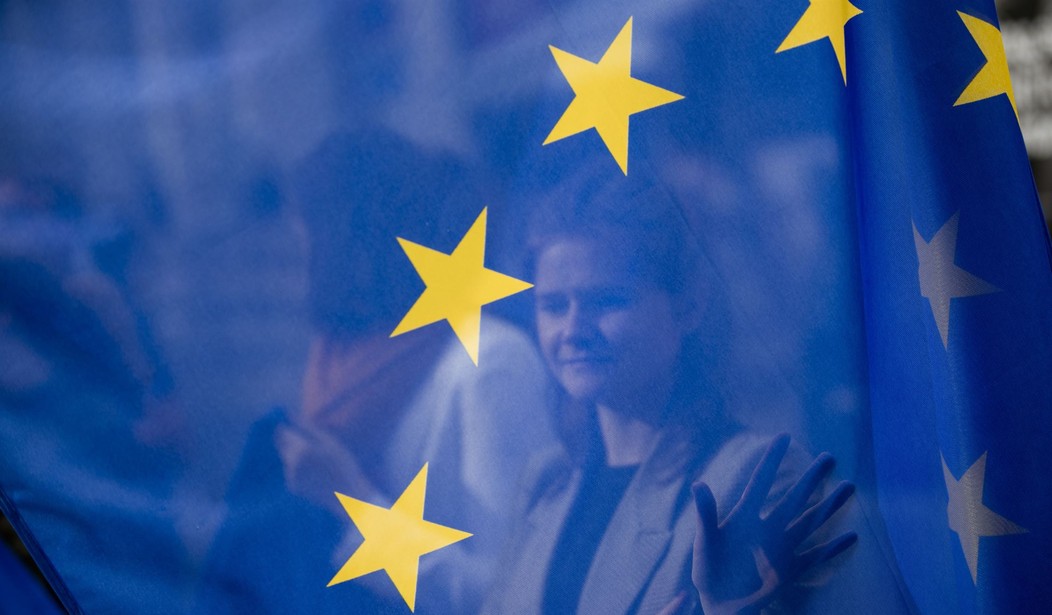If you are a graduate of Yale University, you can vote every spring for a member of the Yale Corporation, which selects the school's president. However, you can only participate if you vote for one of the two candidates nominated by the Alumni Fellow Nominating Committee, a group of university officials and graduates. There's no way to write in a name or, if you don't favor either candidate, to cast a blank ballot. You must vote for one of the insiders' choices or not vote at all.
Now Yale is a private institution, and no one is obliged to have anything to do with it (except perhaps the governor and lieutenant governor of Connecticut, who are ex officio members of the corporation). However, the Yale example has a certain similarity to the way governmental elites restrict the choice of voters in European nations, even while deeming themselves guardians of "democracy."
On March 11, Romania's constitutional court removed presidential candidate Calin Georgescu, who finished first in the first round of voting last year, from the May 4 runoff ballot. It was alleged that he benefited from TikTok accounts paid for by Russia and that he "violated the very obligation to defend democracy."
On March 30, a court in Paris convicted National Rally party leader Marine Le Pen of embezzling European Union funds and barred her from running for office for five years. She finished second, with 41% of the vote, in the 2022 presidential election and was leading in the polls for the 2027 contest, which incumbent Emmanuel Macron is constitutionally barred from running in.
On May 2, Germany's Verfassungsschutz (Office for the Protection of the Constitution) designated the Alternative for Germany party as a right-wing extremist group, which could lead to it being banned from participating in elections. The AfD finished second in the Feb. 23 election, with 21% of popular votes, behind the Christian Democrats' 29%.
The excuse for excluding Georgescu, Le Pen and the AfD from the political process is that they threatened to shut down democracy. Which brings to mind the communist playwright Bertolt Brecht's comment in 1953 when his fellow East Germans rioted and demanded a new government.
Recommended
"Wouldn't it be easier for the government to dissolve the people and elect another?" he asked.
It brings to mind Vice President JD Vance's Feb. 14 speech at the Munich Security Forum, which shocked many European elites.
"I believe that dismissing people, dismissing their concerns, or, worse yet, shutting down media, shutting down elections or shutting people out of the political process protects nothing. In fact, it is the most surefire way to destroy democracy," he said.
German elites would ask you to understand that their nation's history imposes special burdens. The postwar Bundesrepublik banned publication of Nazi propaganda and Hitler's "Mein Kampf" for obvious reasons -- measures forbidden by our First Amendment.
The AfD has had some unsavory leaders and spokespeople, and it's unfortunate that Vance met with its leader in Munich, just as it's unfortunate that former Chancellor Olaf Scholz endorsed former President Joe Biden and former Vice President Kamala Harris in 2024.
However, there's no serious argument that Georgescu or Le Pen or the AfD wants a second Holocaust. Their support comes from opposition to mass immigration.
Vance referenced this in Munich.
"No voter on this continent went to the ballot box to open the floodgates to millions of unvetted immigrants," he said to no applause. "And more and more, all over Europe, they're voting for political leaders who promise to put an end to out-of-control migration."
However, barring immigrants from coming into a country is not another Holocaust. It is not morally equivalent to slaughtering fellow citizens who are Jews, Roma, homosexual or mentally impaired.
It's a puzzle why so many highly educated Europeans -- and highly educated Americans -- feel that limiting the number of immigrants entering their countries is morally akin to mass murder.
This seems less like generosity -- a solicitude for people with unfamiliar cultural attitudes and behavior patterns -- and more like snobbery: disdain for ordinary citizens who are uncomfortable with such people.
The itinerant author and photographer Chris Arnade said it would be easy for European elites "to simply change their policy positions on immigration -- not dramatically even."
"We had to destroy the village in order to save it," an American was supposed to have said during the Vietnam War.
European elites seem to have convinced themselves that they must destroy democracy in order to save it.
However, this may not work. Last Sunday's winner in Romania was a political ally of Georgescu; Marine Le Pen's young deputy, Jordan Bardella, is polling nearly as well as she was; and Germany may yet hesitate to ban the AfD.
We have seen echoes of the European elites among some of their American counterparts, who sought to use kangaroo court verdicts and dubious constitutional arguments to bar President Donald Trump from the ballot and who seem to regard any attempt to enforce immigration laws as morally equivalent to genocide.
Not all of the Trump administration's immigration actions are, in my view, defensible. However, the cries that the United States is closing its gates to immigrants ignore the fact that it welcomes around 800,000 individuals to become American citizens every year.
The U.S. has never had a fully open-borders immigration policy. Even during the supposedly "give me your tired, your poor" Ellis Island period, immigrants had to be free of communicable disease and capable of supporting themselves economically. These standards were enforced mainly by the steamship companies, which had to ship back people rejected by immigration station inspectors.
Americans have also had a habit of assimilation and encouraging non-adversarial attitudes toward American institutions. Is it too much to hope that European elites, though shocked by Vance's speech, might pay respectful attention to their own citizens rather than continue on the course set out by Brecht?

























Join the conversation as a VIP Member